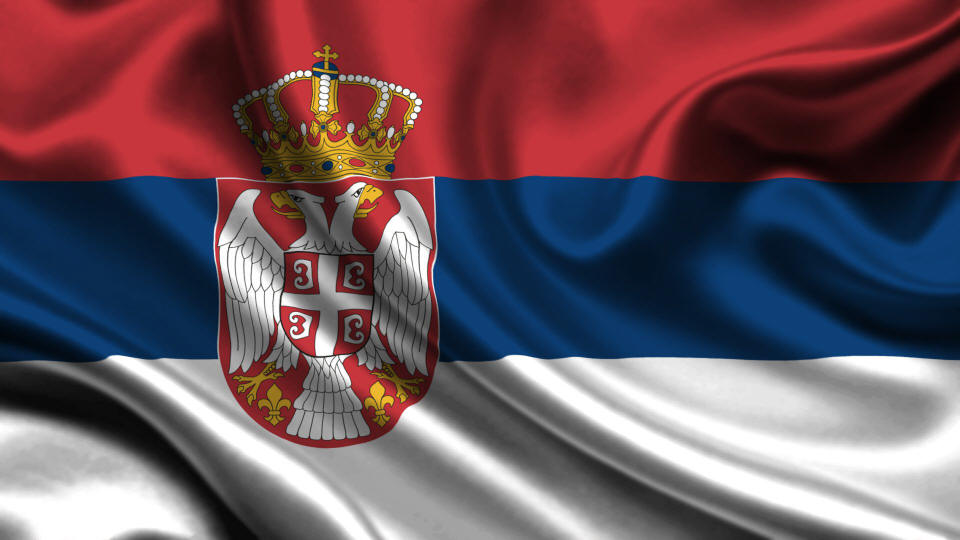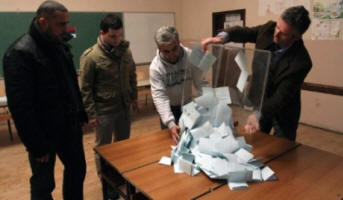Elena Svachich Human Rights Worker in Serbia
![]()
![]()
![]()
![]()
![]() http://www.jar2.biz/Audio/Elena_Svachich/02162012_Robles_Svachich.mp3
http://www.jar2.biz/Audio/Elena_Svachich/02162012_Robles_Svachich.mp3
Download audio file 17 February 2012, 14:46
Interview with Elena Svachich, a human rights worker in Serbia.
Could you tell our listeners a little bit about the mood in the country with the referendum?
The general feeling, as you said, in Serbia is not very well. We have referendum going at our Southern part of our country in Kosovo and we are awaiting the results.
What do you think the results will be?
We do know some results, by 4 pm today there have been 64% voters, so legally it’s done, so we just have to see what they said. That can be expected.
What do you think will happen if the Albanian authorities are deemed to be illegitimate?
It’s very hard to tell but the referendum is legitimate, as much as I know, and they cannot overthrow it without some kind of riot and people at Kosovo are desperate to keep the institutions of Serbia there because that’s the only way that they can survive.
Regarding human rights violations in Serbia can you detail some of those for us please?
First of all, part of our country is occupied. Kosovo was bombed, that’s against humanitarian rights of those people, there is radiation. Then, there has been so many arsons and killings and all kind of violence there with no one to protect those people, transplantation of organs is proved but it’s really amazing that they lost the results of the research.
How is it that they are getting away with what they are doing? I am talking about the organ transplanting, for example.
No one can understand it. Three thousand people are lost at Kosovo and none of the institutions are looking for them, it’s like they never existed.
And you say these are all the people that have been killed for their organs, probably? Yes?
Yes, many of them, but many of them are just slaughtered. And 300,000 had to leave their houses and flee,300 thousand, and you’re in Russia so maybe it’s not such a big figure for you but for us it’s disastrous.
No, it’s a huge amount of people. I think three people would have been too many. You’re talking about 300,000 thousand, and 3,000 missing.
In light of all those data that I gave you that no one cares about those people, they are forsaken, betrayed by their government.
I think we care. It’s not true that nobody cares.
Yes, there still are some people who care because institutions do not care enough.
What can we do to help the situation? What can we do to help these people? What can we do to get the truth out?
This is one way of getting the truth out and we try to get to as many people as possible because the media in Serbia are trying to hush up things that are going on and the economic situation in Serbia is very tough, so people try not to bother with anything that is not directly connected to them.
Who controls the media in Serbia?
Government, of course. And our government is very strange, I mean it’s like they are the first enemies of these people.
Who would you say, regarding the black market organ transplanting, is responsible for this?
I can’t tell you the names but it’s obviously very organized and several governments, we believe, are connected to it.
What governments?
And there is another thing; drug trafficking in amazing quantities. It’s not just few people, those are people who have background in several different countries.
What countries do you think are involved in this?
We can only guess. It’s better that we do not make assumptions.
Are you afraid to talk about this subject? Are you afraid something might happen to you?
Not afraid, not exactly afraid, but, you know, it’s too big to point a finger at someone specific, there are assumptions but we have no real proof.
When you are talking about 3,000 people disappearing, yes that is very big, and that has to be very organized. I mean you can’t just kill people and transplant their organs, you need hospitals, you need doctors, you need professionals, you need a lot of equipment, you need locations. That’s not possible that’s just something small.
We have all kinds of problems there since bishop Artemia was banished from Kosovo, people are left even without the consolation of the church. The Orthodox Church in Kosovo was the safe place to go when things go wrong and now the churches are locked. We do have many data that shows that he is not to blame and that he was framed in many ways and we have data against some other participants who are still working there in public kitchens at Kosovo who are supposed to feed people there, humanitarian organization too, but we do have data that they are misusing the help that they are getting and we are preparing to sue them, it’s better than we don’t mention too many details because it’s not all prepared. For example, the help from Russia that came, we are very thankful to all Russian people and to Ambassador Konuzin who did so much. Help came to Red Cross but we have data from people at Kosovo that only 2,000 packages are given away, 2,000 out of 6,000. Other things are sold in nearby towns, they are not given away to those who are sensitive. We are surprised that no Russian supervisors stayed there to see it given. I wouldn’t say the names because we still don’t have enough to prosecute. We are surprised that there are no supervisors from Russia there. I don’t think it’s Albanians, it’s a private person, who is connected probably with all aspects of government at Kosovo meaning both Albanian and Orthodox church there. It’s very complicated there, you cannot point a finger at one person or one organization without pointing out at many others who ordinary people wouldn’t think are connected.
Did they get the generators and the heaters that the Russian Federation sent?
Generators and heaters came earlier and they are given away and they are doing their job but there have been avalanches and people were killed.
How many people have died?
10 people, I think.
![]()



























